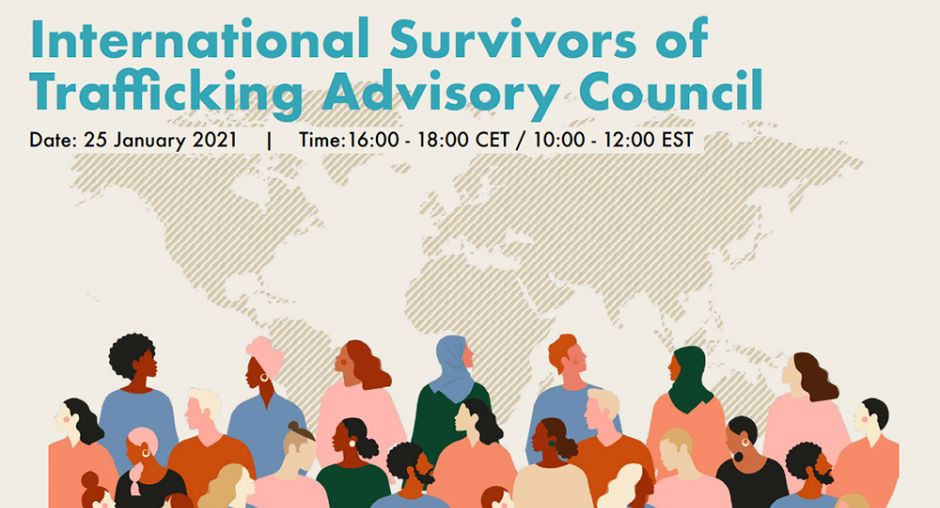OSCE human rights office launches survivors’ advisory council to strengthen fight against trafficking in human beings

WARSAW, 25 January 2020 – Recognizing the vital importance of reflecting the experience and knowledge of survivors in all endeavours to combat human trafficking, the OSCE Office for Democratic Institutions and Human Rights (ODIHR) has launched the International Survivors of Trafficking Advisory Council (ISTAC) to assist countries across the OSCE region increase and improve their anti-trafficking efforts.
“The insight and expertise we are gaining from our new advisors make today a milestone in ODIHR’s work to combat human trafficking,” said ODIHR Director Matteo Mecacci. “Listening to survivors of trafficking is vital to understand their needs and give them real support. But our final aim must be to prevent these terrible crimes from taking place.”
The advice, guidance and recommendations provided by ISTAC will assist ODIHR in its work to support countries from across the OSCE region in strengthening their national legal, policy and regulatory anti-trafficking frameworks and reinforcing a victim-centred approach. Through their own experience and work, many ISTAC members are also models of survivor leadership who can help foster the development of national and international survivor networks.
“When we support the growth and leadership development of survivors, we open ourselves to the possibility of becoming a world in which trafficking ceases to exist,” said ISTAC Chair Lisa C. Williams. “Self-empowering opportunities allow survivors to move beyond the trauma of their lived experiences towards a greater understanding of their worth and ability to become life-affirming contributors to society.”
All OSCE countries have made numerous commitments to combat trafficking in human beings, and ODIHR has been active in this area for more than two decades. In its 2020 report on the human rights challenges caused by COVID-19, ODIHR noted that the outbreak of the pandemic across the OSCE region increased the vulnerability of those already at risk of becoming victims of trafficking in human beings, particularly women and girls. At the same time, the pandemic had a hugely negative impact on the ability of countries to respond swiftly or effectively to trafficking, leaving survivors in dire need of support.
ODIHR was joined at today’s launch by Siobhan Mullally, the UN Special Rapporteur on Trafficking in Persons, especially in Women and Children, HRH Princess Eugenie, Kari A. Johnstone, Acting Director, Office to Monitor and Combat Trafficking in Persons (TIP Office), U.S. Department of State, Valiant Richey, OSCE Special Representative and Co-ordinator for Combating Trafficking in Human Beings, as well as anti-trafficking activists from across the region. All speakers highlighted the importance of taking the experiences and challenges faced by survivors into account when developing policy to prevent and combat human trafficking.
Survivors’ first-hand observations and expertise helps us identify gaps and opportunities based on their experiences, said OSCE Special Representative Valiant Richey. "Their voices can help mobilize the most important ingredient in the fight against human trafficking: political will."
ISTAC members are appointed for a two-year renewable term. The 21 members are: Kendall Alaimo (USA), Trisha Baptie (Canada), Mariaam Bhatti (Ireland), Zita Cabais (France), Daniella De Luca (Spain), Jerome Elam (USA), Marina Gorbunova (Uzbekistan), Regina Lee Jones (Norway), Angelina Kurdenok (Russian Federation), Diane Martin (UK), Ronny Marty (USA), Timea Nagy (Canada), Sandra Norak (Germany), Mercy Obade (Denmark), Itohan Okundaye (Finland), Maria Oringo (Netherlands), Bukola Oriola (USA), Lisa Williams (USA), Shandra Woworuntu (USA), Hyab Yohannes (UK), and Laurent Ziegler (Austria).
